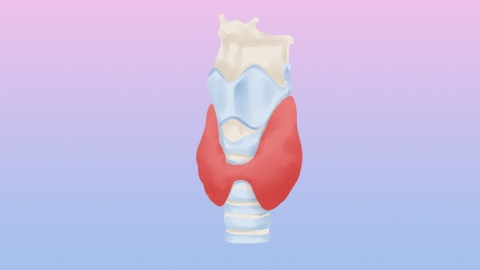Can hyperthyroidism cause elevated free thyroxine levels?
Hyperthyroidism usually refers to hyperthyroidism. Generally, hyperthyroidism leads to elevated levels of free thyroxine, and timely medical consultation is recommended for treatment under a doctor's guidance. A detailed explanation is as follows:

Hyperthyroidism refers to thyroid hormone toxicity caused by excessive production of thyroid hormones by the thyroid gland itself. This excess thyroid hormone is primarily released into the bloodstream in a free form, thereby increasing the level of free thyroxine in the patient's blood. Free thyroxine refers to the biologically active thyroid hormone molecules in the blood that are not bound to proteins, and it is one of the important indicators of thyroid function, directly reflecting the physiological effects of thyroid hormones. When hyperthyroidism occurs, the thyroid tissue secretes excessive thyroid hormones, which exist in the blood in free forms, leading to elevated levels of free thyroxine.
If diagnosed with hyperthyroidism, patients can follow their doctor's instructions to use medications such as propylthiouracil tablets, carbimazole tablets, and metoprolol tartrate tablets. In daily life, maintaining a healthy lifestyle will be more beneficial for disease recovery.







